Three words sum up Israel’s huge mistake with Gaza
A three-word phrase was adopted by Israel and its approach to dealing with Gaza. But the end of that phase is officially over.
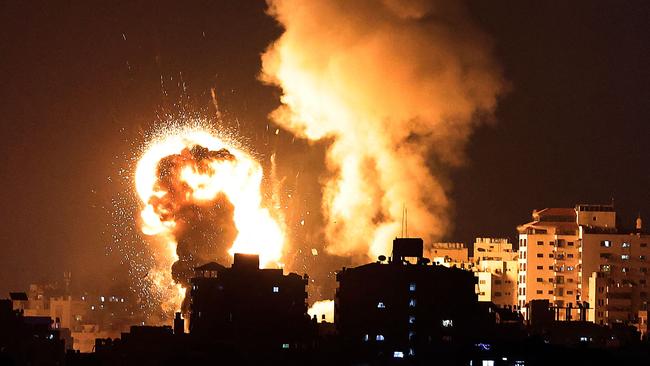
Israel’s about to unleash yet another overwhelming assault on the Gaza Strip. Then what?
Israel’s government has enforced a punitive policy dubbed “mowing the grass”. It regarded the cycle of retaliatory strikes against Hamas as a necessary but unpleasant chore to prevent the terrorist organisation from growing out of control.
But it offered one way for the Israeli government to ‘kick the can down the road’ and not address the territorial, civil, humanitarian and international law issues beneath the crises in Palestine’s Gaza Strip and West Bank.
Two decades and hundreds of Israeli and thousands of Palestinian civilian lives later, the surprise October 7 attack proves the strategy has failed spectacularly, says RAND think-tank analyst Raphael Cohen.
“It was not just an intelligence failure and an operational failure but also a more sweeping strategic failure,” he argues.
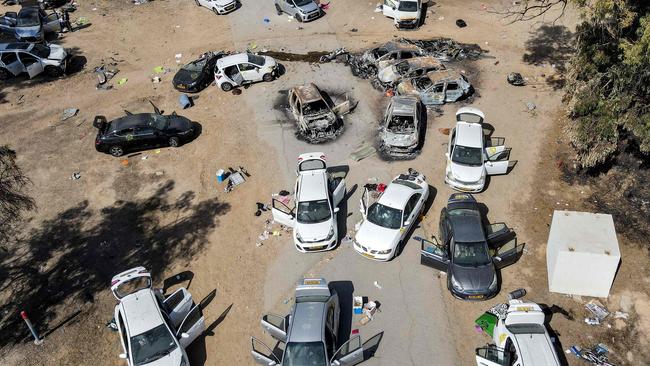
The government of Prime Minister Benjamin Netanyahu was caught entirely off guard. So much so it had even diverted many of the military units guarding the Gaza border to protect illegal Israeli settlers in the West Bank.
Codenamed “Operation Swords of Iron”, Netanyahu’s reprisal is set to far outweigh any past “grass mowing” operation. More than 360,000 reservists have been mobilised for a major ground campaign, many of whom had vowed not to participate in military service after Netanyahu recently moved to gut the power of Israel’s supreme court.
But to what end?
Key members of Netanyahu’s “emergency unity security cabinet” have demanded an “exit strategy” from Gaza. They fear a repeat of the failures of the past, with a new generation of jihadis born from the civilian “collateral damage” of a new military occupation.
“The things that will determine who ultimately wins this war are entirely uncertain,” says Centre for Strategic and International Studies (CSIS) senior vice president Jon Alterman. “What politics will emerge in Gaza after the fighting stops and the rubble is cleared? Who will be in control, and who will support them? Will Gazans seek a pathway forward living in peace and increased prosperity, or will the voices of alienation and despair grow even louder and usher in a new cycle of violence?”
What is Israel’s endgame?
“We will wipe this thing called Hamas, ISIS-Gaza, off the face of the earth. It will cease to exist,” Israeli Defence Minister Youav Gallant proclaimed days after his forces were humiliated on October 7.
Israel has long had the military strength to wipe out Hamas. But a 2017 research paper by the RAND Corporation stated it recognised that attempting to do so would come with immense political risk.
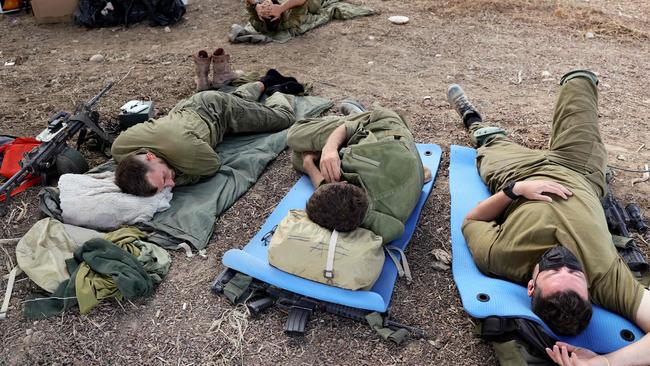
Civilian casualties would be enormous as Hamas fighters are Gaza residents and members of the broader Palestinian refugee population. Unverified reports claim some 1300 Israelis and 4600 Palestinians have already been killed in the latest round of fighting.
And any permanent occupation means Israel must embrace responsibility for governing the territory.
“As such, Israel’s grand strategy became ‘mowing the grass’ — accepting its inability to permanently solve the problem and instead repeatedly targeting the leadership of Palestinian militant organisations to keep violence manageable,” the RAND report states.

But dodging the issue is no longer politically viable for the Netanyahu government.
Israel’s population has had enough. Shortly after the October 7 attack, a poll indicated some 65 per cent support a full ground invasion.
What comes next hasn’t been addressed.
“Not surprisingly, Israelis are not discussing these longer-term questions much yet,” says Alterman. “Israelis are still reeling from the shocking losses of October 7 and the unfolding hostage crisis. They are united in their need to act firmly, to reassert Israel’s deterrent power, and to avenge what appear to be hundreds of acts of cold-blooded murder.”
Repeating the mistakes of the past?
“While violence is likely to escalate in the coming weeks, violence will not determine who wins this war,” says Alterman. “The winners will be determined at the negotiating table. The point of fighting the war is to get there. Even the most ferocious assault cannot alone lead to victory, and as Hamas will soon learn, the most ferocious assault can actually lead to defeat.”
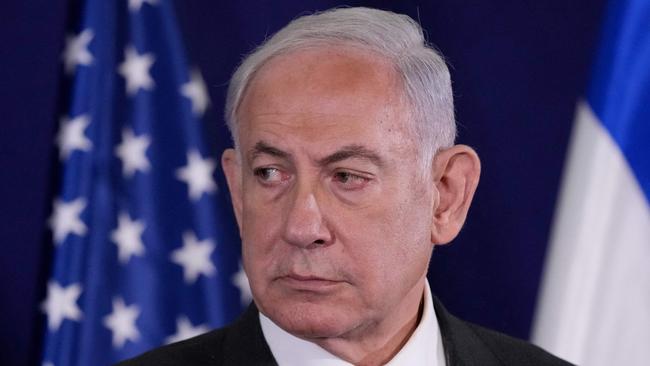
It’s a lesson that also applies to Israel.
And it’s one US President Joe Biden recognised when he visited the conflict-torn state last week. The “vast majority of Palestinians are not Hamas”, he said. “Hamas does not represent the Palestinian people.”
He said failing to recognise such a distinction had caused the US to make severe mistakes after the 9/11 attacks on New York and Washington DC.
“As four US presidential administrations discovered in Afghanistan, creating stability in the aftermath of conflict is far more difficult than toppling a weak regime in the first place,” says Professor of Military History Peter Moor.
“Israel has the capacity to level Gaza and round up segments of the population, but that may not be wise. Doing so might serve the immediate impulse of exacting revenge on its enemies, but Israel would likely receive massive international condemnation from creating a desert in Gaza and calling it peace, and thus forgo the moral high ground it claims in the wake of the Hamas attacks.”
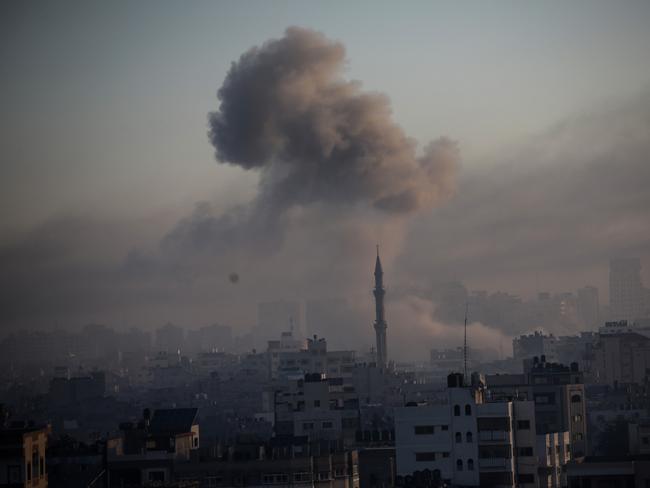
He points to the survival, strengthening and eventual victory of the Taliban under the US-led Coalition occupation of Afghanistan.
“Wars that are based on revenge can be effective in punishing an enemy, but they can also create a power vacuum that sparks a long, deadly conflict that fails to deliver sustainable stability,” Moor states. “That’s what happened in Afghanistan, and that is what could happen in Gaza.”
Into the abyss
“The question is what kind of government will emerge in Gaza after the war,” says Alterman. “It might entail greater control for the Palestinian National Authority based in Ramallah, some sort of new local governance, governance under the tutelage of the Israeli military, or perhaps a coalition of Arab states. There are a lot of possibilities, but it is hard to imagine that Hamas can remain in power.”
But, without a plan for what happens after the shooting stops, the chances are yet another power vacuum – like that in Syria, Lebanon and Afghanistan – will emerge from the rubble of ruined homes, institutions and infrastructure.
“Wars that are based on revenge can be effective in punishing an enemy, but they can also create a power vacuum that sparks a long, deadly conflict that fails to deliver sustainable stability,” adds Moor.
The instability and chaos that lingered after the wars in Afghanistan, Iraq and Syria is widely considered to have produced the conditions exploited by Islamic State to launch its extremist terror-based campaign in 2015.
Radicalised Palestinians could likewise mobilise a campaign against occupational forces and Israeli civilians alike. These would also offer recruiting opportunities for external militant groups, including those backed by Iran.
But is Israel ready to end the failed cycle of revenge and “mowing the grass”?
“This will be hard for an Israeli public that had grown comfortable with the idea that Palestine is not only too hard to solve, but also a problem that doesn’t need to be solved,” says Alterman. “And it will be especially hard for a government that includes a number of strident hard line voices who represent a potent minority of voters, and from whom the public will be insisting on accountability this winter, just as diplomacy is unfolding.”
But the mood to “clean house” within Israel’s beleaguered population appears to be rising, he adds. “They are critical of their leadership. They accuse politicians and the military alike of missing the signs of an impending attack and of being distracted from the country’s real security issues. The time for accountability will come. In the meantime, Israelis will need their leadership to make an excruciating decision: when to stop fighting, and on what terms.”
Originally published as Three words sum up Israel’s huge mistake with Gaza





